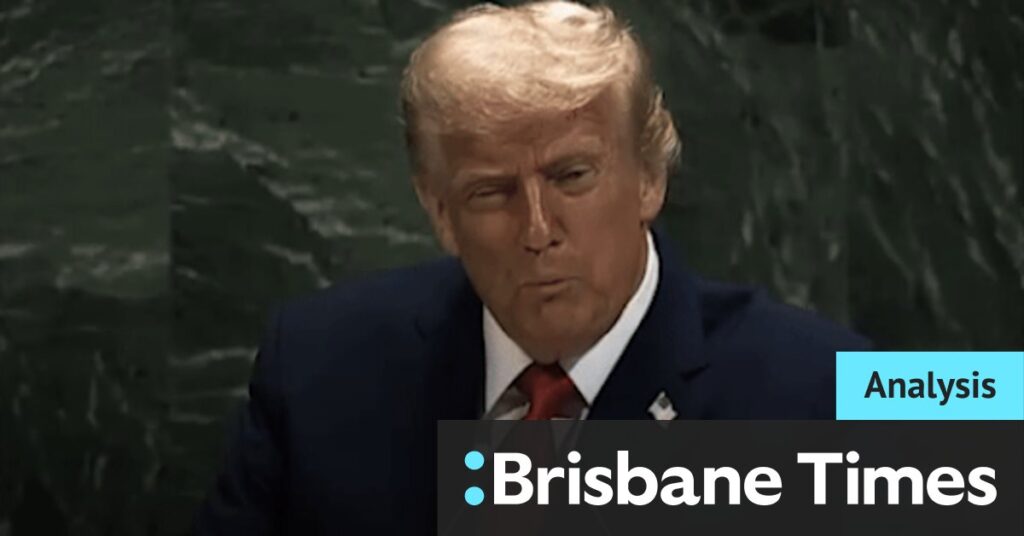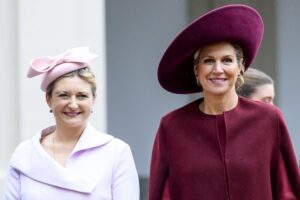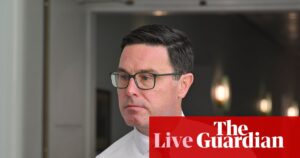
New York: In a dramatic turn of events at the United Nations, former President Donald Trump shifted his stance on the Ukraine conflict, signaling a commitment to support Europe against Russian aggression. This unexpected move came after a day filled with controversial remarks and a rejection of globalism.
Trump’s day began with a vehement speech at the UN General Assembly, where he denounced globalism and emphasized the importance of national sovereignty. He criticized immigration, climate change initiatives, and multilateral cooperation, advocating for self-determination and national identity.
A Controversial Address
During his address, Trump took aim at multiculturalism, stating that each country’s uniqueness should not be diluted by immigration. He singled out London, referencing its Muslim population and Mayor Sadiq Khan, as an example of what he perceived as cultural erosion.
“It’s been so changed,” Trump said. “Now they want to go to sharia law. But you’re in a different country, you can’t do that.”
Political commentator Ed Kilgore described the speech as “blood-and-soil nationalism,” contrasting it with Australia’s multicultural ethos. Trump’s rhetoric, while resonant with some, starkly opposes the values of inclusivity and diversity embraced by many nations.
Climate Change Denial
Trump further stirred controversy by dismissing climate change as a “con job” and a “hoax.” He criticized world leaders for their stance on the issue, asserting his own correctness on the matter.
“It’s the greatest con job ever perpetrated on the world,” he claimed, adding that those who disagreed were “stupid.”
His comments were met with skepticism and concern, as climate change remains a critical global issue. Experts warn that such denial could hinder international efforts to combat environmental challenges.
Shift on Ukraine
Despite his earlier rhetoric, Trump later expressed support for Ukraine in its conflict with Russia. After meeting with Ukrainian President Volodymyr Zelensky, Trump posted on Truth Social, suggesting that Ukraine could reclaim its territory from Russian control.
“After getting to know and fully understand the Ukraine-Russia military and economic situation,” Trump wrote, “I believe Ukraine is in a position to fight and win back all its land from Putin.”
This marked a significant departure from his previous stance, where he had suggested Ukraine was at a disadvantage and might need to cede territory. Trump’s change of heart raises questions about his motivations and the influence of recent discussions with Zelensky.
Contradictory Signals
Trump’s sudden support for Ukraine contrasts with his earlier remarks about Europe as a collection of failing states. His administration’s actions, however, suggest a continued engagement with international allies, despite his disdain for globalism.
US Secretary of State Marco Rubio tempered Trump’s optimism, stating at a UN meeting that the conflict in Ukraine “cannot end militarily – it will end at a negotiating table.” This underscores the complexity of the situation and the need for diplomatic solutions.
Implications and Future Prospects
Trump’s unpredictable stance on Ukraine highlights the challenges of interpreting his foreign policy. Former US ambassador to Russia, Michael McFaul, noted that concrete actions, such as imposing new sanctions on Russia or increasing military aid to Ukraine, would indicate a serious commitment to his statements.
“When Trump imposes a new sanction on Russia and asks Congress for new funds for military assistance to Ukraine, then we will know that he’s ready to back up his words with actions,” McFaul commented.
The international community remains watchful, as Trump’s rhetoric and actions continue to influence global dynamics. His recent remarks suggest a willingness to engage with Europe, but the consistency and sincerity of this approach remain uncertain.
As the situation evolves, the world will be closely monitoring Trump’s next moves and their potential impact on the Ukraine conflict and broader international relations.
Stay informed with insights from our foreign correspondents by signing up for our weekly What in the World newsletter.





